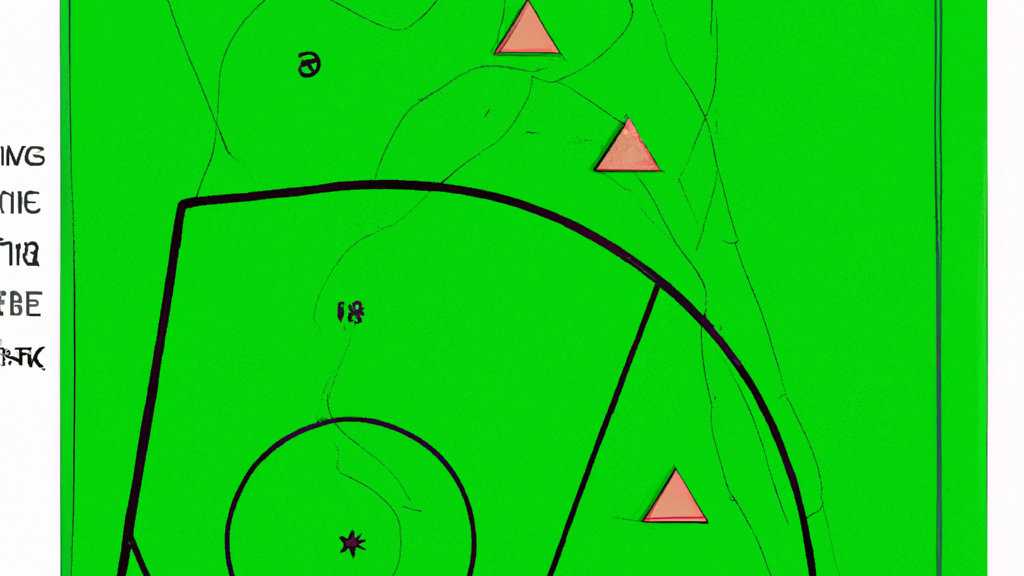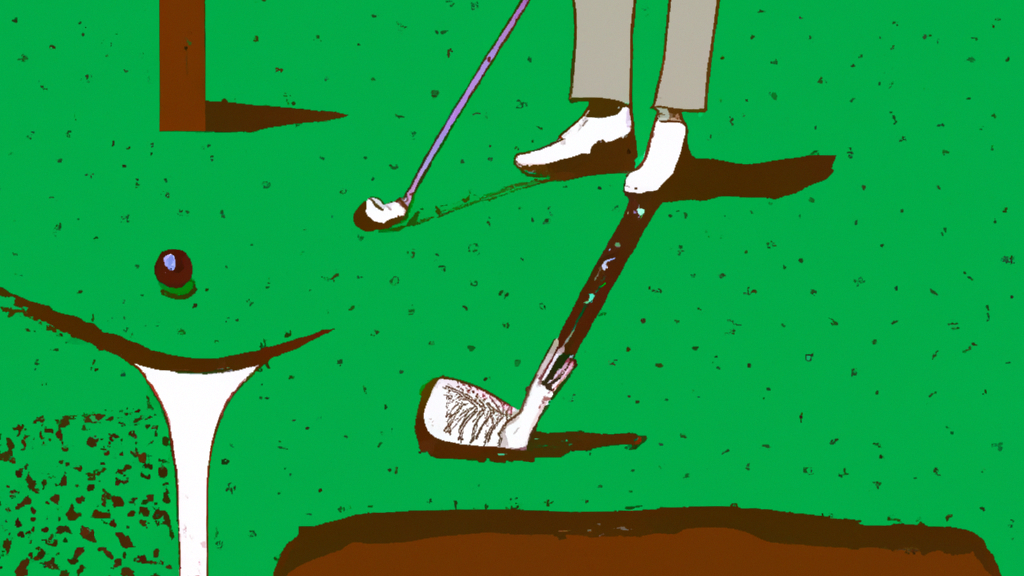THE MENTAL GAME OF GOLF TRAINING: IMPROVING SKILLS AND CONFIDENCE THROUGH EFFECTIVE PRACTICE
Golf is a game of skill, strategy, and mental toughness. While most golfers focus on improving their physical abilities, the mental game of golf training is equally important. The ability to stay focused, manage emotions, and maintain confidence can make all the difference on the course. Effective practice techniques can help golfers develop these mental skills and improve their overall game. In this article, we will explore the mental game of golf training and how it can help golfers of all levels improve their skills and confidence on the course.
Whether you are a seasoned pro or a beginner, understanding the mental aspects of golf can take your game to the next level. So, let’s dive in and discover how you can improve your golf game through effective mental training.

Golf and Mental Training: Why It Matters
Golf is a game that requires both physical and mental skills. While most golfers focus on improving their physical skills, they often overlook the importance of mental training. The mental game of golf training is crucial for improving skills and confidence through effective practice. In this article, we will discuss the importance of mental training in golf, how to improve mental skills, and the benefits of mental training for golfers.
The Importance of Mental Training in Golf
Golf is a game that requires a lot of concentration, focus, and mental toughness. Golfers need to be able to stay calm and focused under pressure, make quick decisions, and maintain a positive attitude throughout the game. Mental training helps golfers develop these skills and improve their overall performance on the course.
One of the most important mental skills in golf is visualization. Visualization is the ability to create mental images of shots and scenarios on the course. By visualizing shots before they are taken, golfers can improve their accuracy and consistency. Visualization also helps golfers stay focused and confident throughout the game.
Another important mental skill in golf is self-talk. Self-talk is the internal dialogue that golfers have with themselves during the game. Positive self-talk can help golfers stay motivated, focused, and confident. Negative self-talk, on the other hand, can lead to self-doubt, anxiety, and poor performance.
How to Improve Mental Skills in Golf
Improving mental skills in golf requires practice and dedication. Here are some tips for improving mental skills in golf:
- Practice visualization: Spend time visualizing shots and scenarios on the course. Imagine yourself hitting the perfect shot and visualize the ball landing exactly where you want it to.
- Use positive self-talk: Replace negative self-talk with positive affirmations. Instead of saying “I can’t do this,” say “I am capable of hitting this shot.”
- Stay focused: Focus on the present moment and avoid getting distracted by past mistakes or future outcomes. Stay in the moment and focus on the shot at hand.
- Stay calm under pressure: Practice deep breathing and relaxation techniques to stay calm and focused under pressure. Take deep breaths before each shot and visualize yourself staying calm and focused.
- Set goals: Set realistic goals for yourself and focus on achieving them. Celebrate your successes and learn from your mistakes.
The Benefits of Mental Training for Golfers
Mental training has many benefits for golfers. Here are some of the benefits of mental training for golfers:
- Improved performance: Mental training can improve performance on the course by helping golfers stay focused, confident, and calm under pressure.
- Increased confidence: Mental training can increase confidence by helping golfers develop a positive attitude and belief in their abilities.
- Reduced anxiety: Mental training can reduce anxiety by helping golfers stay calm and focused under pressure.
- Better decision-making: Mental training can improve decision-making by helping golfers stay focused and make quick, accurate decisions on the course.
- Improved overall well-being: Mental training can improve overall well-being by reducing stress and anxiety and promoting a positive attitude.
Conclusion
The mental game of golf training is crucial for improving skills and confidence through effective practice. Golfers who focus on improving their mental skills can improve their overall performance on the course and enjoy the game more. By practicing visualization, using positive self-talk, staying focused, staying calm under pressure, and setting goals, golfers can improve their mental skills and reap the benefits of mental training.

- Learn, Trust and Test For More Effective Golf Practice
Sep 16, 2019 … During the Learn phase, we are learning how to improve our technical skills. During the Trust phase of practice, we are developing trust in … - Self-Confidence and Performance | Learning, Remembering …
This type of goal-orientation is well suited for skill development because people seek to improve their competence, judge their capabilities in terms of … - How Exaggerating Technical Errors Could Improve Your Technique …
A third of the golfers were randomly assigned to training group A. … and then took 7 practice swings, hitting a ball into a golf net 2.5m away from the … - Gamifying and Finding Your Challenge Point In Practice
Nov 20, 2018 … If lowering your scores and playing better, more enjoyable golf is your goal, then developing long-lasting skills that transfer to the golf … - A Better Way to Do Mental Practice | Bulletproof Musician
May 14, 2017 … How it can not only enhance learning, but improve performance, help build self-confidence, regulate your emotional state, and more. Yet most of … - Managing performance anxiety and improving mental skills in …
Dec 18, 2014 … Students with a strong sense of competence in musical skills and control over … developing confidence, improving self-talk, learning and … - Interventions to Improve Walking in Older Adults – PMC
The motor learning program results in a more efficient use of physiological … Components of the motor skill for walking practiced in one exercise task are … - Dr. Bob Rotella: Inside the Golfer’s Mind | Instruction | Golf Digest
Jun 5, 2008 … Therefore, no matter how long you practice a golf swing, … than he or she is, and that using the mind is one essential way to improve. - 14 Sports Psychology Techniques & Tips for Coaching Athletes
Mar 28, 2021 … Developing mental toughness: From research to practice. Journal of Sport Psychology in Action, 2(1), 21–32. Deci, E. L., & Ryan, R. M. (1985). - The Top 12 Things All Successful Athletes Demonstrate | IMG …
Nov 11, 2019 … They have the self-discipline to put in early morning training sessions, to sacrifice social activities in exchange for more practice, …
Fascinating facts about The Mental Game of Golf Training: Improving Skills and Confidence through Effective Practice you never knew
- Golf is one of the oldest sports in the world, with origins dating back to 15th century Scotland.
- The first recorded game of golf was played on March 26, 1297 by King James II of Scotland at Bruntsfield Links in Edinburgh.
- The term “caddie” comes from the French word “cadet,” which means younger son or assistant.
- The longest hole in professional golf is the par-5 fifth hole at Green Eagle Golf Course in Germany, measuring a whopping 1,100 yards!
- In Japan, it’s considered good luck to make a hole-in-one and tradition dictates that you must buy gifts for your playing partners if you achieve this feat.
- Professional golfer Phil Mickelson has won five major championships but has also finished as runner-up six times – more than any other player without winning that particular major tournament!
- Augusta National Golf Club – home of The Masters tournament – was originally an indigo plantation before being transformed into a golf course by Bobby Jones and Clifford Roberts in 1933.
- Tiger Woods became the youngest ever winner of The Masters when he triumphed aged just 21 years old back in April 1997





